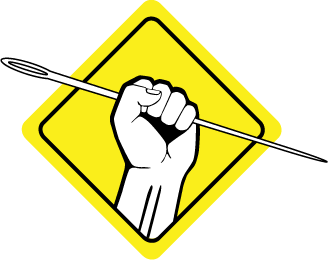
Offers are sometimes withdrawn after an inspection; unfortunately it’s a fact of life. It is hard on everyone when this happens. The owners are arguably the most let down. If it happens a couple times it can be extremely frustrating. What do you do?
It is nice to be prepared. Have your realtor ask who will be inspecting your home before it happens. At this point everyone is friendly and the information might be helpful later on.
Next remember buyers might be walking away for reasons other than those contained in the inspection report even though they say it has to do with deficient items in the home. Refrain from rushing out to do expensive repairs that may or may not exists. Then look at your options.
Disclosure
Understanding disclosure is the most important first step. If you know something is wrong with your home you can be held accountable if you fail to declare it. So before you start make sure you want to know what’s wrong.
You could just re-list and try again.
Another strategy is simply to refuse offers with a home inspection as a subject. This is more common in a sellers market and will likely set off alarm bells in a buyers market. It can scare potential buyers away maybe even needlessly. Once again you can never be sure why the previous buyers walked away.
After you decide you are comfortable with disclosure you need to understand what issues are present in your home and why these items might be scaring potential buyers away.
Determining Condition
A good starting point is to compile what you already know about your home. List all of the work you did in the house, when it was done, why, and provide the receipts for the work or at least the name of the contractor if no receipts are available. This accomplishes three very important goals, it shows buyers you are forthright and honest, it can allow buyers insight into areas of the home that might be otherwise inaccessible, and finally it provides a timeline that might have an impact on current inspections.
Example:
One client’s front porch was significantly settled, affecting both the entry, the bedroom located above the porch and the one below. I was skeptical when they said it was sloped like that when they moved in. During a discussion they mentioned the basement suite was put in when they first moved in. The ceiling was put in sloped and it showed no signs of cracking, while the upstairs bedroom had old repairs to the lath and plaster, which they had not done. This all gave credence to their explanation. The settling likely happened before they purchased the home. I suggested they produce the receipts for the work in the basement.
If you had an inspection when you originally purchased the home and dig it out.
Consider having the original home inspector you used re-inspect the home and summarize his findings compared with his old report. This enables buyers to understand what are long standing issues. Settled, uneven floors are not as scary when you know they have been that way for years.
Ask the buyer that has withdrawn from the contract if they would consider giving or selling you the home inspection report they had produced. Negotiate a grossly reduced price; remember they don’t need it anymore. They may be hesitant. You could offer to hold them faultless for anything contained in the report.
Alternatively contact the home inspector that did their review. Inspectors are not allowed to recycle reports unless expressly granted by their previous client however individual inspectors may be willing to review the deficiencies in your home with you at a reduced rate, as the hard work is already done.
Have another inspector perform an inspection or review the details of items previously provided by buyers as deficient.
Once you have a good handle on the actual deficiencies in your home you need to determine what to do about them. Some may even be safety issues you would like to have fixed immediately for your own safety.
Deficiency strategies
Fully disclose everything found in the inspection report.
Consider providing your home inspection report to prospective buyers. If this is a strategy that works for you before hiring an inspector ask if they will perform a summary walk-through with prospective buyers. This will generally allow buyers a greater level of comfort for a greatly reduced rate on a full inspection.
If your buyers are aware of items before they make an offer these same items are no longer a valid reason to withdraw from a contract.
Once you have a recent inspection report compare it against your original inspection report. You are trying to establish issues that have not changed during your stay in the home thus reassuring potential buyers. The more factual your presentation the more believable it will be for buyers, avoid fluff.
You may choose to repair some of the less expensive items, as it will be one less thing wrong with your home. You can identify the items that have been repaired or have another report produced. A re-inspection of the repaired items will likely be less than a full report especially if negotiated up front.
Good inspectors balance issues within the context of a homes age, style, and the magnitude of the deficiency. Other inspectors just list one issue after another leaving a homebuyer with the impression the home is a money pit, which may not be the case at all.
Get quotes on the repairs required that you don’t want to do. Most companies provide quotes for free or ask them to provide a ballpark price over the phone as an alternative if possible. A defective pressure-reducing valve can be a scary prospect for some buyers. A $300 quote from a plumber for its repair is not nearly as intimidating. A new roof is terrifying for most buyers, while even a $12,000 quote might not be. It is the unknown that people fear most.
You may choose to have a more expensive repair inspected by a certified trades person. A furnace or even knob and tube wiring is an example of this. Older wiring certified by an electrician is more palatable. A twenty-year-old furnace might be perfectly fine but most inspectors will call for its replacement. A specialist might say it will be fine for another five years.
Inspectors are generalist and report on items as such. Hiring numerous specialized trades to inspect your entire home is far from cost effective, however paying an electrician a few hundred dollars to say your wiring is ok is far more cost effective then paying thousands to have your house rewired.
After obtaining a true picture of your homes condition and the repairs that may be required it could be time to review your price point with your agent.
One pager
Now the key is to write up a one pager that explains away possible contentious issues the home might have. Provide it as part of the disclosure before the inspection. All of the items must be short and factual.
For example your foundation:
Purchasing our home we were concerned about its porous foundation, fortunately it has been bone dry and stable for the ten years we've been here.
Now prospective buyers are expecting to hear about the issue during an inspection. It's not a surprise and not as scary. You have mentioned it first so you seem honest and because of this buyers are much more likely to believe your statement. The second reason for this is not all inspectors can be counted on to put issues into context for their clients.
Pricing Strategy
Finally we get to the most disagreeable strategy for most homeowners. You can always reduce your list price if the home has been on the market for longer than ideal. Reducing your price may renew interest in your listing.
You could also be more willing to entertain negotiations after the buyer becomes aware of deficiencies through their home inspection.
Contract renegotiations may provide you more control. You will not be hit by the double whammy of a price reduction quickly followed by renegotiations after an inspection.
Conclusion
Establish your comfort level with disclosure.
Find out the true condition of your home.
Determine what items need to be quoted.
Repair any issues you deem necessary.
Write the one pager.
Possibly review your pricing strategy.
Only you can answer the best strategy or strategies for your residential listing. We wish you luck and let us know if Haystack Home Inspections can help you in any way.

